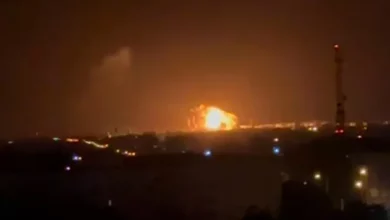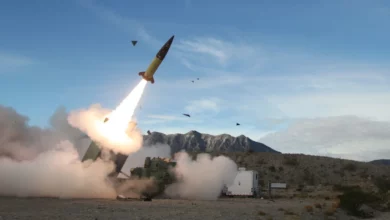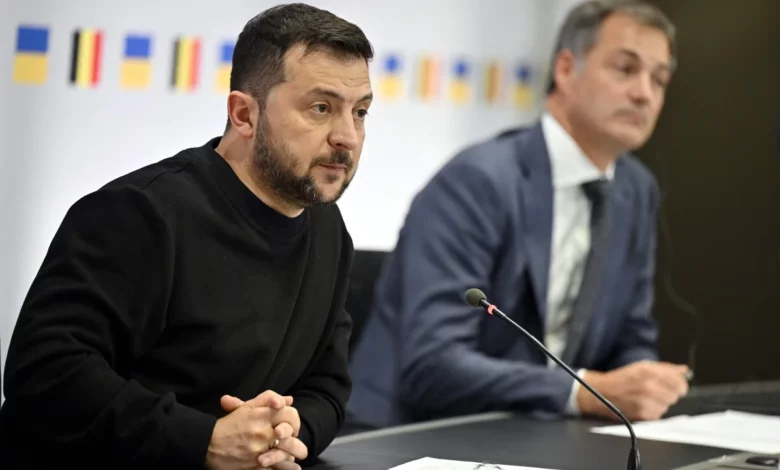
On the global stage, Ukrainian President Volodymyr Zelensky has been consistently on message: In visits to Washington and other Western capitals, he has focused on keeping Kyiv supplied with more advanced arms, ammunition and financing.
At home, however, he faces a human resources problem. The war is approaching the end of its second year, and Ukraine’s military needs more manpower to sustain a bloody war of attrition against Russia, a country with more than three times the population of Ukraine.
In a recent essay, Ukraine’s top military commander, Valery Zaluzhny acknowledged that training and recruiting troops was becoming a serious challenge.
“The prolonged nature of the war, limited opportunities for the rotation of soldiers on the line of contact, gaps in legislation that seem to legally evade mobilization, significantly reduce the motivation of citizens to serve with the military,” he said.
The essay acknowledged a bleak reality: Ukraine needs more people in uniform, and it needs them now.
So, how serious is Ukraine’s mobilization challenge? The issue is clouded, in part, by official secrecy. Kyiv does not publicly disclose its manpower targets; nor does it reveal the total number of dead and wounded, although casualties on both sides since February 2022 are estimated to number in the hundreds of thousands.
Ukraine fills its ranks with volunteers but also has a system of conscription that allows the state to draft men of military age.
After Russia’s full-scale invasion, Ukraine imposed martial law, under which all males between the ages of 18 and 60 were considered liable for military service and could be mobilized unless they were eligible for a deferment. In 2023, the rules of military registration were updated to include women. But the measures stopped short of full conscription.
Martial law introduced draconian travel restrictions. Men between 18 and 60 are generally barred from exiting the country, although there are a wide range of exemptions, covering everything from single parents of young children to professional athletes.
While it is difficult to get an exact portrait of how far Ukrainians are responding to the call to serve in the military, officials have acknowledged publicly that evading military service and enforcing mobilization rules are an issue.
At a briefing on November 9, State Border Service of Ukraine spokesperson Andriy Demchenko said that over the last 10 months, 43,000 citizens of Ukraine were refused exit at the border.
“The reasons were different, but mostly because they did not qualify,” he said.
The war is sometimes simplified as an industrial contest: Ukraine’s Western backers are racing to produce ammunition for Kyiv, as Moscow ramps up domestic production of artillery shells and seeks fresh supplies from North Korea. But it’s also a recruitment contest against Russia.
Mobilization is a matter of survival for Ukraine. A long-awaited counteroffensive across a broad front has failed to yield any major breakthroughs on the battlefield, and Western support is at risk of wavering, especially as events in Israel and Gaza in the last month divert attention from the prolonged conflict in Europe.
CNN spoke with several individuals of fighting age to get snapshots of their motivations to fight – or to avoid enlistment.
Interviews are condensed and edited for length and clarity. Some of those interviewed did not want to give their full names.
“If the war continues… as it is today, there is no way to avoid conscription.”
Maj. Viktor Kysil serves with the “Khartiia” brigade. Until recently, he was involved in recruiting for his unit.
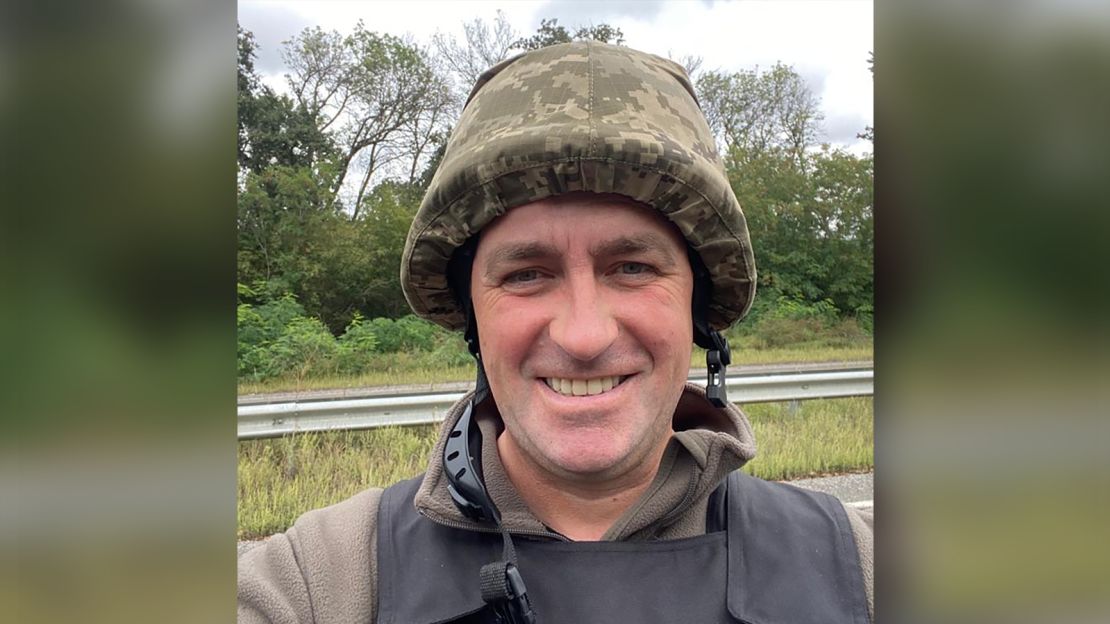
All those who wanted to serve voluntarily have already served somewhere. There are still people who do not want to serve of their own free will. If a person hasn’t come under the attention of the military enlistment office by 16-18 months into the war, then he or she obviously hopes that he or she won’t be drafted into the army for the next 18 months.
From what I can see, there is a shortage of military personnel, sometimes a critical shortage. Besides, a variety of military positions require different skills – some require physical training, some require intellectual skills. Everybody has different skills.
As a military man, I was served with a (draft) summons in the street several times. I have encountered people who were recruited online. When a person learns that he or she has a chance to go to the war zone, the desire to earn (a monthly army salary of) UAH 20-30,000 ($550-$830 per month) or even UAH 100,000 ($2,750) immediately disappears.
If the war continues with the same intensity as it is today, there is no way to avoid conscription.
“Civilians have become too relaxed.”
Mark Holovei, 29, works as a civilian volunteer supporting the military. He is willing to be mobilized.

In general, I cannot be drafted due to my health problems. I have chronic polycystic kidney disease. It is not treatable. I’m on a special diet and have to be admitted to the hospital every six months as a preventive measure. I also have type 2 diabetes. I have to take medication all the time.
But I think that now if someone gets a draft notice, then no one will consider the health problems, for the purpose of filling the ranks. Anyway, I’m not afraid of it. If I get a draft notice, I am ok with being mobilized. It’s just that now I actually know where I want to be mobilized. I want to join the brigade of my boys, who I’ve been volunteering for.
In the very beginning of the full-scale invasion a friend of mine asked to help and bring something to the military. At first, I was mainly bringing food, drinks, some cookies, cigarettes, etc. And I mainly helped my friends and friends of friends. Later I started helping with the medicine – I was gathering the first aid kits and the tourniquets. At first I was coming to the units 20 kilometers (12.4 miles) away from the front line, then I was getting closer and closer to the front line.
Civilians have become too relaxed. The dance clubs are working, night taxis are working. Until there’s a missile attack on their city, people tend to forget that we’re actually in the middle of the war.
‘The rate of sexism is pretty high in the army’
Maria Zaika, 31, is the marketing manager of a pharmacy network. She is ready to register for service.

“I went to my local military enlistment office to find out more (about mobilization). I wanted to register. I asked the recruitment officer whether it was voluntary for women, to which he replied it was ‘voluntary-compulsory.’
“I am ready to register for service, I am not afraid. Now women are starting to be recruited. In general, a lot of female pharmacists voluntarily join the army.
“I’ve talked with my husband about me registering in the military enlistment office. He supported me.
“In general, military men are not being very supportive of their girlfriends or wives joining the army, as the level of sexism is still pretty high in the army.
“In general, I’m sure we have problems with reserves. My (military) husband tells me about the situation on the front line and I understand that we’re running out of people. A lot of Russians (are) getting killed, yes, but their numbers don’t seem to run out.”
‘What has this country given me?’
Yevhen, 32, is an IT specialist. He plans to challenge any draft summons.
“I think that everything that happens with mobilization is illegal and unfair. Legally, there are no grounds for many actions in the recruitment centers. Therefore, I have a negative attitude to everything that is happening. Of course, it is not about supporting Russia, it is clear that they attacked us. But… if I get a draft notice tomorrow, I will consult a lawyer and challenge it.
“Everyone talks about responsibilities. But I have a question: What has this country given me that I owe it anything? My parents paid for my education, although I was an excellent student and had to study on a budget. It turns out that no one adheres to the law, but everyone talks about obligations.
“What good am I at the front if I have no military training? I will either be killed in two minutes, or I will work here and pay taxes and support the economy.”
‘It is not the steel that wins, it is the spirit’
Oleksandr Dyadyushkin, 36, an HR consultant before the full-scale war and a lecturer in philosophy and the history of religion, volunteered for this year’s counteroffensive last month.
“I understood that (this) would be a rather protracted conflict, with guys coming to the front, gaining experience, but the enemy would work in the same way. That is why the number of professional troops participating in the fighting will be constantly growing, both on our side and on the enemy’s side.
“We need to focus on the long game. Not in the sense that I am ready to lay down my life, but in the sense that I will improve my skills from month to month, year to year. That’s why I don’t regret coming here now. I see a job for me.
“The role of people in this war is crucial. As you know, it is not steel that wins, it is the spirit that wins. The spirit, the intellect.”
‘I strengthen the GDP of this country’
Vlad, 30, an IT worker, wants to avoid conscription.
I think that Ukraine, unfortunately, is not ready to fight Russia. We do not have the strength, money or weapons to do so. We were not prepared for it at all. Who is to blame for this is another question. Russia has strengthened its position in the east, so it is a senseless killing of our citizens.
I don’t want to go to fight. I am neither morally nor physically ready. I’ll try to avoid getting a draft notice. If I get it, the company will try to organize that I will be in the rear.
I believe that I help the country, I get my salary from outside and bring foreign currency to the territory of Ukraine. So I strengthen the GDP of the country. I am more useful in this than in the war.
‘They do not realize what they are getting into’
Dmytro Kostyuk, an army lieutenant is currently undergoing rehabilitation after being wounded in July. He is willing to return to active service.
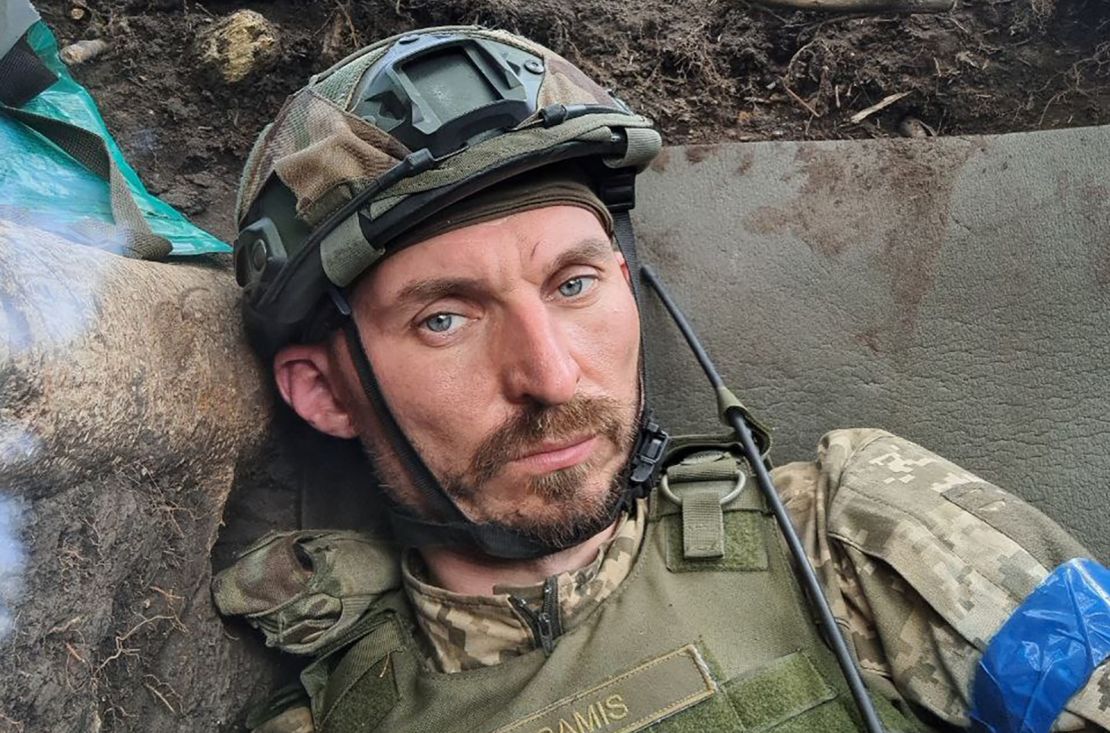
I went to serve from the very beginning of the Russian invasion on February 24 (2022). At that time there was no mobilization as such, many guys rushed to the military commissariats, and I did the same. But they only accepted people if they had draft notices. I didn’t have one. However, later I found out that they were accepting people for the territorial defense, and I went there.
We were in the area between Bakhmut and Klishchiivka. We were attached to the 5th Assault Brigade. The brigade was storming the Russian positions, and we went in and held those positions. That’s where I got wounded.
My platoon was short of people, so we were replenished with foreign fighters, 12 in total. For some it was the romance of war, for others it was a professional activity. Many of such people are now coming to Ukraine because it is a good line in their resume. As a rule, they do not realize what they are getting into. Many people imagine our war as a gunfight with the enemy, but they don’t realize how much artillery there is, and that you sit under fire all day, every day, and may not see the enemy at all.
Foreigners are a different story, because they can easily terminate a contract, unlike Ukrainians. It happened to me – almost half of the people saw everything and said, “No, no, this is too much. This is not the kind of war we signed up for.”
The way it (mobilization) is done now – when they try to force someone to join, the way they hand out draft notices is very bad. For example, I am a platoon commander, why do I need a person who does not want to join the army?
I don’t think very highly of such people (draft evaders), but everyone has their own way. It’s hard to judge someone without knowing their situation.
Not everyone can serve, someone has to hold the notorious ‘economic front.’ We are stuck in this war and we need to replace people.

